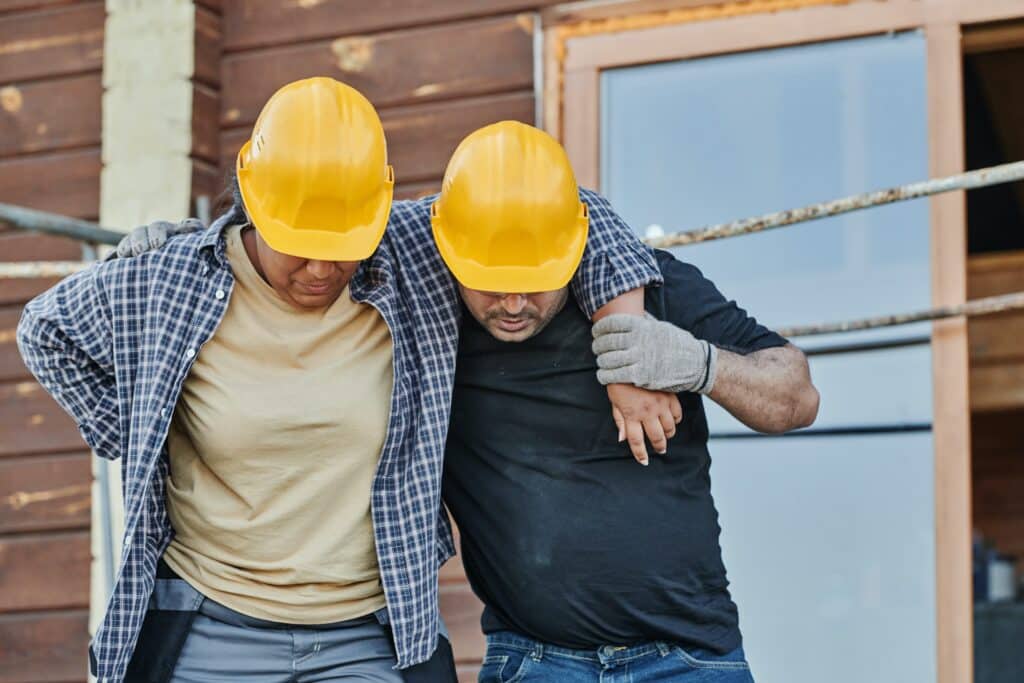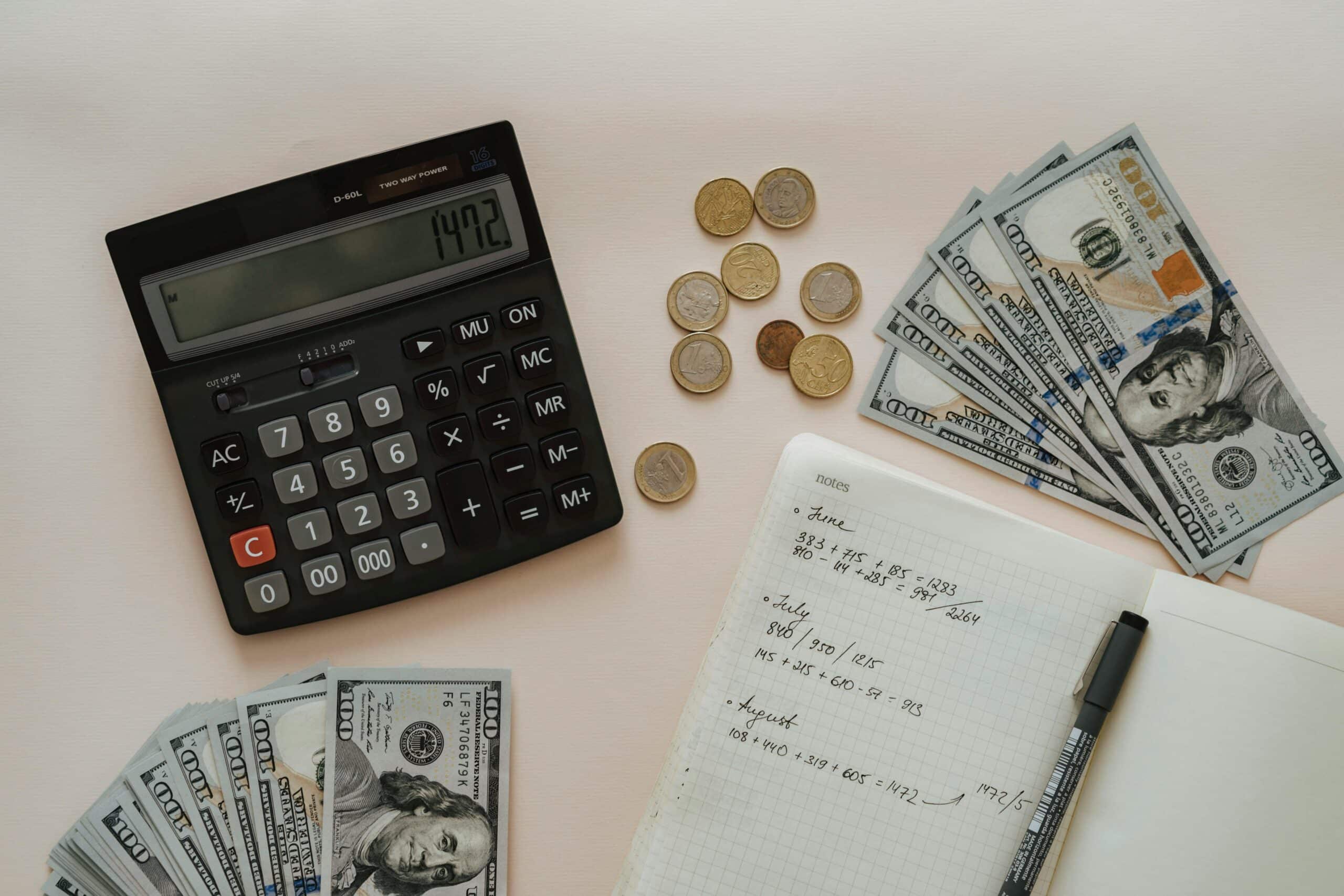Slip and fall accidents are more common in the workplace than you may think.
In fact, these incidents are one of the leading causes of injuries and missed work days. Whether it’s a wet surface or uneven flooring, a slip and fall at work can result in serious injuries that can have long-lasting consequences. It’s important for both employees and employers to be aware of slip and fall hazards in the workplace, as well as how to prevent them from happening.
Whether it’s clearing up spills immediately or ensuring proper lighting, taking proactive steps can help to reduce the risk of slip and fall accidents at work. Remember, a slip and fall accident may seem like just a minor inconvenience, but it could result in missed work time, medical bills, and even permanent disability.
In this article, we’ll discuss some of the most important things to know about slip and fall accidents at work, including what to do if you’ve been the victim of a slip and fall injury in the workplace.
What Hazards Are Associated with Slip and Fall Accidents at Work?
Slips are caused by slick, wet, or sloping surfaces. Footwear can play a role as well. Some slips are caused by workers not taking their time or paying close enough attention to the walking surface as they cross a precarious stretch of wet or slippery terrain.
Conditions that cause slip and fall hazards include:
- Puddled water
- Icy or snowy surfaces
- Greasy surfaces
- Dust or debris that causes a loss of traction
- Uneven or slick flooring such as vinyl or tile
- Sloped ramps or other surfaces without slip resistance
- Loose area rugs or floor mats that lack sufficient grip with the floor underneath
- Lack of adequate lighting

How Common Are Slip and Fall Injuries at Work?
According to the fifth edition of the Industrial Safety & Occupational Heath Markets, employees slipping on slick floors account for 85 percent of Workers’ Compensation claims. The Bureau of Labor Statistics recorded that 22 percent of slip and fall accidents caused workers to miss more than a month of work.
Additionally, according to the Bureau of Labor Statistics, slip and fall accidents are the leading cause of workplace injuries in industries such as retail, construction, health care, and manufacturing. These types of accidents can result in severe injuries, such as broken bones or head trauma, leading to missed work and expensive medical bills.
With this in mind, it’s easy to say that slip and fall injuries at work are far too common, and often very serious.
How Should I Handle a Slip and Fall at Work?
If you are hurt in a slip and fall accident at work, there are a few steps you must take to protect your rights. These include the following:
- Seek medical attention. If your slip and fall injury is severe, you should not waste any time getting the medical attention you need. However, if your injuries are not life-threatening, you may be required to go to a specific doctor by your employer’s Workers’ Compensation policy.
- Tell your supervisor. Assuming your injury allows, your first action after a slip and fall at work should be to notify your manager or representative of the company so that you can be sure you are following the protocols for the company’s Workers’ Compensation process.
- Secure evidence. If possible, obtain evidence to prove what happened in the slip and fall accident. It may be difficult to take this step immediately after being hurt, but it can be invaluable if your account of events is challenged. Take photos of the conditions that caused you to slip and fall at work. Record the names of witnesses to the event and get statements from them if possible.
- File a claim by the deadline. One of the most important things to do after a work accident is to file your Workers’ Compensation claim within the window allowed before the deadline.
- Talk with a lawyer. If you feel overwhelmed by the process or distrustful that the compensation will cover the care you need for your injuries, you may want to discuss your options with a lawyer well-versed in employment law. A lawyer will be able to ensure that your paperwork gets filed correctly and on time. They can represent your interests in an appeal if your claim is denied, and they can advise you about the possibility of bringing suit against your employer, which may be necessary even if your claim is accepted, if the offered payout does not adequately cover the care your injury requires.
What Happens if My Claim Precipitates a Slip and Fall Lawsuit?
Receiving benefits through Workers’ Compensation does not involve any liability on the part of either the employee or the employer. The benefit offers protection on both sides.
However, there are times when the settlement offer does not cover the full extent of the worker’s injuries. When this happens, the worker must decide if they are going to accept the offer as presented or if they are going to take things further.
The most important factor when it comes to this decision is whether the employer bears any liability for the slip and fall accident. This question involves whether the employer knew or should have known about the hazard that caused the accident and whether the employer took action to address it.
What Additional Benefits Are Involved in a Slip and Fall Lawsuit?
If your slip and fall injury at work qualifies to be addressed through the courts, meaning employer liability is at play, you may be entitled to additional damages over and above what should be covered by a Workers’ Compensation claim, namely payments for medical bills and lost wages caused by the accident as well as possible benefits related to work training.
A personal injury lawsuit, by contrast, can provide additional recoveries including how the slip and fall injury affects your life outside of work, which may include compensation for pain and suffering.
What Can Employers Do to Prevent an Employee Slip and Fall Accident?
Employers must take steps to reduce the likelihood of slip and fall accidents in the workplace. One effective way to address the possibility of this type of accident is to ensure that employees are properly trained in how to cautiously deal with slippery walking surfaces. In many industrial settings, employers can mandate that employees wear proper footwear.
However, the best way for employers to do their part to protect employees from a slip and fall accident at work is to keep a clean and safe workplace by providing a well-lit worksite and addressing hazards like spills, greasy surfaces, and icy walkways right away.

Kotlar, Hernandez & Cohen: New Jersey Workers’ Compensation Lawyers Representing Workers After Slip and Fall Work Accidents
Kotlar, Hernandez & Cohen – The People First Lawyers have been helping injured workers with their New Jersey workers’ comp claims since 1995. We work tirelessly for our clients to ensure you receive medical care, financial compensation, and justice, regardless of an adjuster or insurance carrier’s claim denials. With four Board Certified Workers’ Compensation Law attorneys on our team, we are well-equipped to handle your work injury or illness claim.
If you were injured at work in a slip and fall accident, or if your job has caused you ongoing physical pain in any way, contact our law firm to schedule a free consultation or call us 24/7 at (856) 751-7676.


